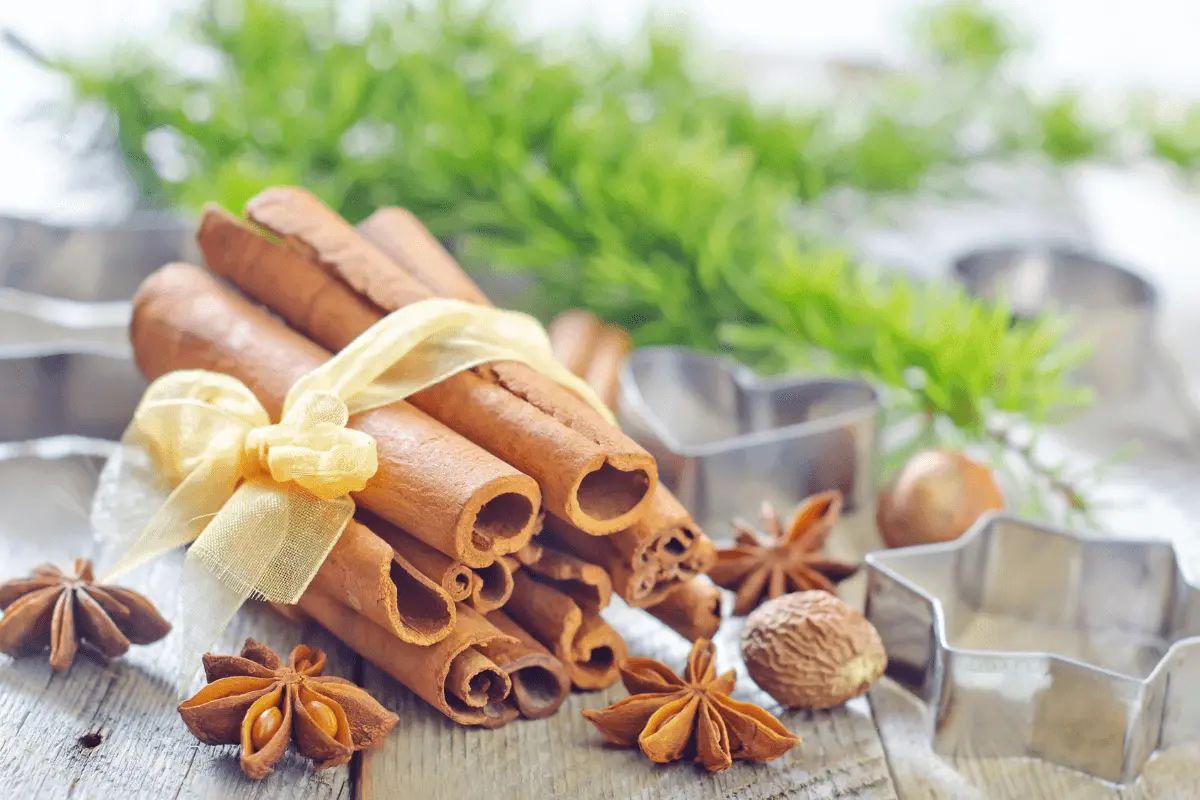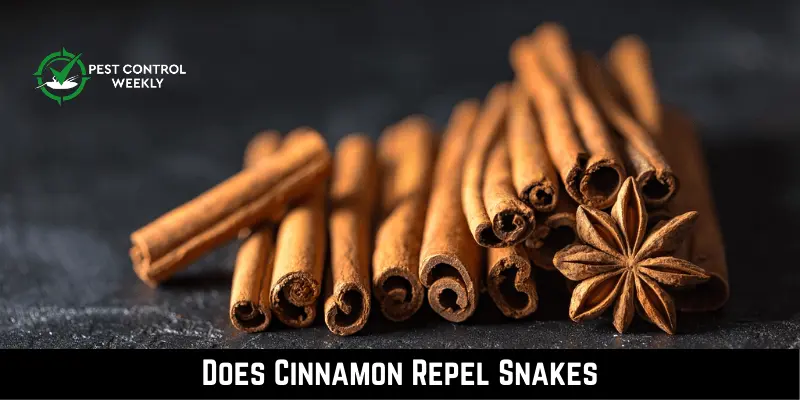Snakes have been both admired and feared by people for a long time. They are usually not welcome in our yards or homes. There are a lot of do-it-yourself ways to get rid of pests, but one claim has been getting a lot of attention: Does cinnamon repel snakes?
Yes, cinnamon may repel snakes. However, there is limited evidence from science. Cinnamon, clove oil, and ammonia may discourage snakes, but their efficacy depends on the type of snake, its size, age, and species.
In this article, we’ll continue with practical suggestions, myth-busting, and the newest research to keep you educated and prepared. Don’t stop. Keep reading to learn more about this.
The Myth About Cinnamon and Snakes

Cinnamon’s snake-repelling abilities have survived for millennia in mythology and anecdotes. With its strong smell, the spice’s claimed ability to keep these snake-like creatures away has come up in many conversations, sparking both interest and doubt. The enduring myth claims that this chemical prevents snakes from passing invisible barriers, whether in its natural form as a fragrant bark or as an oil.
Origin Of The Myth
To discover the backstory of this fascinating myth, one must investigate the lore of ancient cultures. Interesting theories about the interconnectedness of the natural world and all its inhabitants were popular in pre-modern civilizations, inspiring tales that attempted to make sense of the mysterious.
The idea that cinnamon repels snakes stems from the observation of snakes avoiding cinnamon-sprinkled places. Once conceived, the narrative took the tried and true route of oral tradition, which has been kept alive by the human desire for symbolic order and protection over the ages.
Reasons Behind The Belief
The first reason for the myth’s survival is the complexity and mystique surrounding snake behavior. Their forked tongues can capture fragrance particles and transmit them to a sensory organ on the roof of their mouth, giving these animals a unique olfactory system. It’s possible the intense, almost overpowering scent of cinnamon might overwhelm their sensitive senses and cause them to run away.
The second factor is the influence of the human mind. The ability to recognize patterns and take meaning from seemingly unrelated events is crucial to our survival. The notion of cinnamon’s efficacy as a snake deterrent might have originated from the observation that snakes avoid areas where cinnamon has been sprinkled.
One last factor supporting this view is cinnamon’s symbolic significance. This spice is rich in cultural and historical value, from its usage in ancient ceremonies to its current status as a luxury item. The fact that it controls snakes, which are generally reviled and feared, adds mystery to it.
How Do You Make Cinnamon Snake Repellent?
Creating a cinnamon-based snake repellent, despite its lack of efficiency, might be a fascinating folkloric experiment. The procedure is outlined below.
- Cinnamon Selection: Start with high-quality cinnamon. This might be an essential oil or ground spice. Aromatic intensity may serve as a proxy for product quality.
- Method Selection: If using ground cinnamon, sprinkle directly, or spray if using cinnamon oil.
- Direct Sprinkling: If you’ve decided to use ground cinnamon, sprinkle it all around the outside of the area you want to keep protected. Places, where snakes are likely to be included, are beneath rocks, in gardens, and near water.
- Making a Cinnamon Spray: Dilute cinnamon essential oil before using it in a spray. The standard ratio is one part oil to ten parts water, but you may play about with the proportions to suit your taste.
- Spraying the Mixture: Fill a spray container with the diluted mixture. Spray this in locations you don’t want snakes to hang out in. Before each use, shake the bottle to combine the oil and water thoroughly.
- Reapplication: This approach may lose its potency over time and following weather events like rain. It will be essential to reapply regularly.
Snakes may be dangerous, therefore, it’s important to exercise caution around them. This home remedy has not been scientifically shown to be successful and should not be used in place of legitimate methods for controlling snake populations
Cinnamon And Other Ingredients To Repel Snakes
| Ingredients | How to Use | Expected Result |
| Cinnamon and Clove Oil | Mix equal parts of each essential oil with water, and spray around areas where snakes have been seen. | The strong smells may interfere with snakes’ sense of smell, potentially deterring them temporarily. |
| Cinnamon and Garlic | Grind both into a powder, mix them together, and spread them around the perimeter of your property. | The combined strong odors may act as a temporary deterrent for snakes. |
| Cinnamon and Lime | Mix cinnamon and lime essential oils with water, and spray around areas where snakes have been seen. | The citrus and spice smells may be off-putting to snakes, potentially deterring them temporarily. |
| Cinnamon, Cayenne Pepper, and Rock Salt | Mix these ingredients together and spread them around your property. | The strong smell and irritating properties of these substances may deter snakes. However, this mix could be harmful to plants, other wildlife, and pets. |
Scientific Evidence About Cinnamon Repelling Snakes
Cinnamon has long been believed to have snake-repelling properties, but scientific research has shown a more complicated picture. Cinnamon’s ability to deter these limbless reptiles has not been verified by rigorous research. Evaluating such claims requires an honest, scientific approach that takes a methodical look into the chemistry of cinnamon and its effect on snake behavior.
Despite relegating the cinnamon snake deterrent notion to the realm of urban legend, the absence of supporting evidence for this claim highlights the need for more research into this phenomenon.
Studies On Snakes’ Reaction To Cinnamon
There has been a lot of zoological study into the intriguing realm of snake sensory perception, but surprisingly few papers address their sensitivity to cinnamon. However, it is well-documented that snakes’ great sense of smell is vital for hunting and navigation, and strong, unpleasant odors can influence their behavior.
The idea that anything as aromatic as cinnamon may upset such well-balanced systems is not farfetched. This hypothesis, however, requires extensive, controlled scientific investigation. Until such investigations are conducted, this notion will remain tantalizingly unverified.
Observations And Expert Opinions
Herpetologists are hesitant about supporting folklore-based deterrents. They stress that environmental, biochemical, and sensory elements contribute to snake behavior and that it is rarely possible to draw straightforward cause-and-effect links.
Experts agree that strong odors may deter snakes, but they warn that using cinnamon as a snake repellent is unlikely to be successful and may even be hazardous if it leads to complacency in regions where snakes are common. They frequently use professional techniques for preventing and dealing with snakes.
Other Potential Snake Repellents
Commercial Snake Repellents
Chemicals like naphthalene and sulfur are commonly used in commercial snake repellents. The chemosensory system of a snake is said to be irritated by these compounds, leading to pain and subsequent avoidance of the treated regions. It’s worth noting, though, that the efficacy of such repellents can vary widely and be species-specific, and their influence on the ecosystem can be significant.
Natural Snake Repellents
The primary strategy of natural snake repellents is to alter the environment. It has been shown that reducing the number of rodents in an area, keeping the yard clean, and removing possible hiding locations like thick grass and mounds of waste all work together to make the environment less appealing to snakes.
Some people recommend using plants like marigolds and wormwood that are claimed to discourage snakes, but there isn’t any solid scientific data to back up these assertions.
Conclusion
In conclusion, there is little scientific evidence to support the myth that cinnamon may be used to repel snakes. DIY cinnamon snake repellents can seem like a good idea, but there is no evidence that they work. Relying on them could give you a false feeling of security. As a result, it is essential to rely on professional guidance and procedures shown to be effective in the face of the possible threat posed by snakes. The story of cinnamon’s supposed snake-repelling properties is an interesting addition to our conversations about nature, but it shouldn’t take away from the importance of proper, expert snake care.
